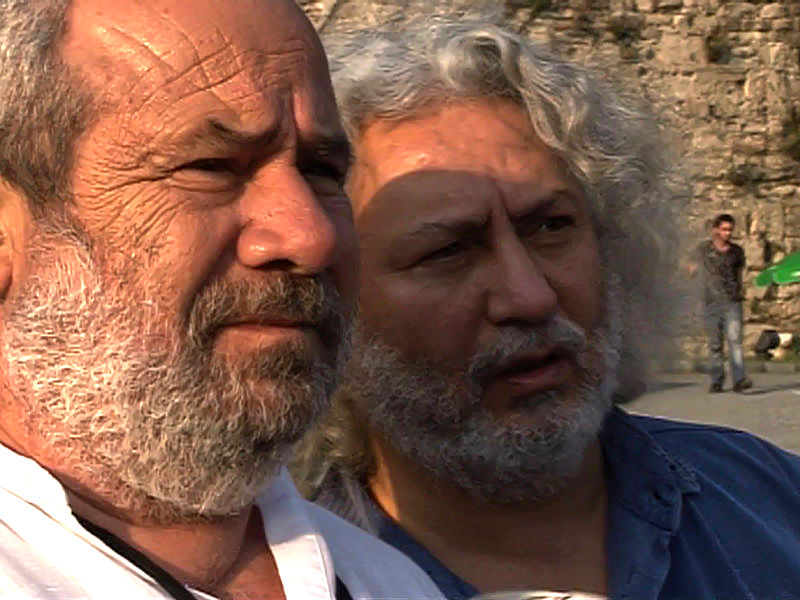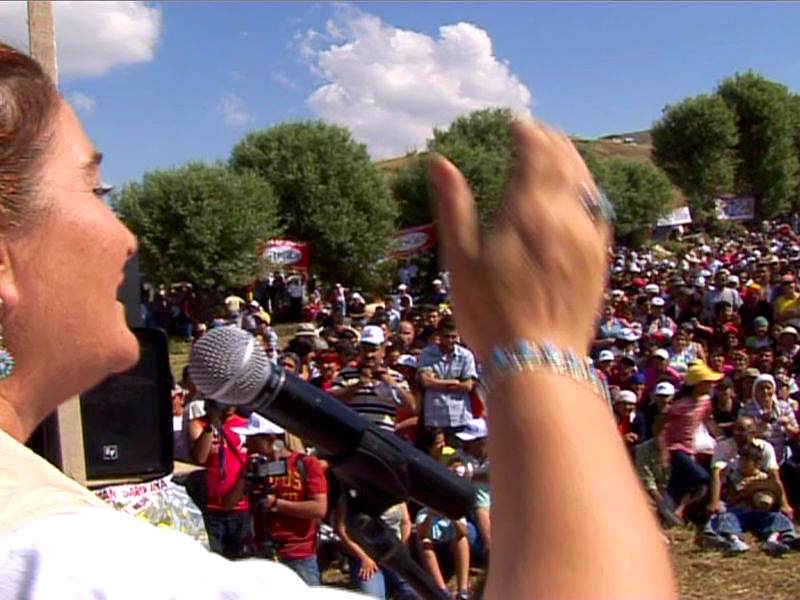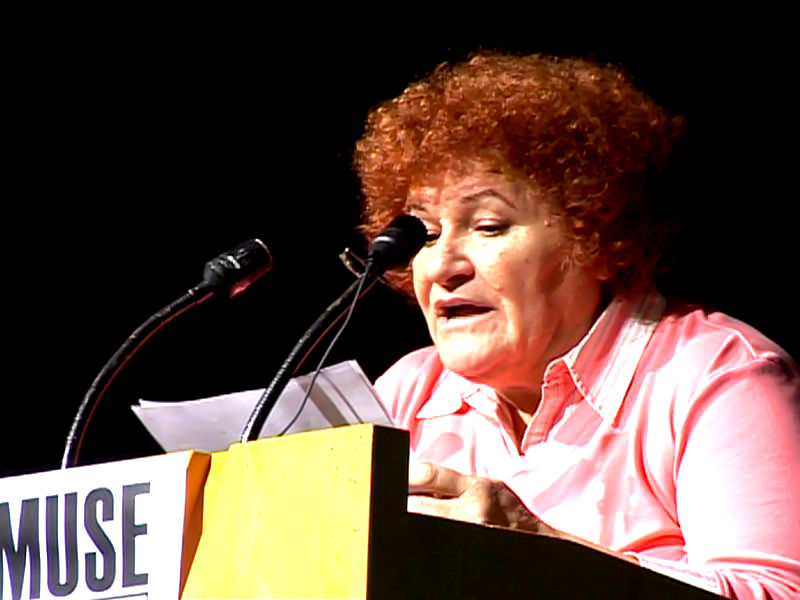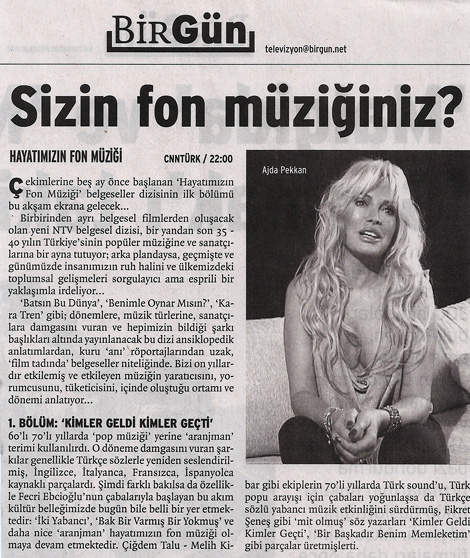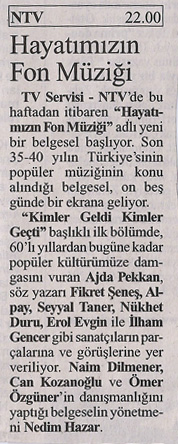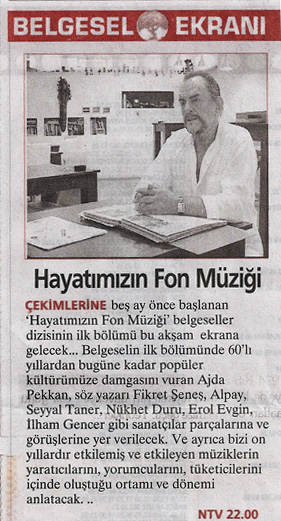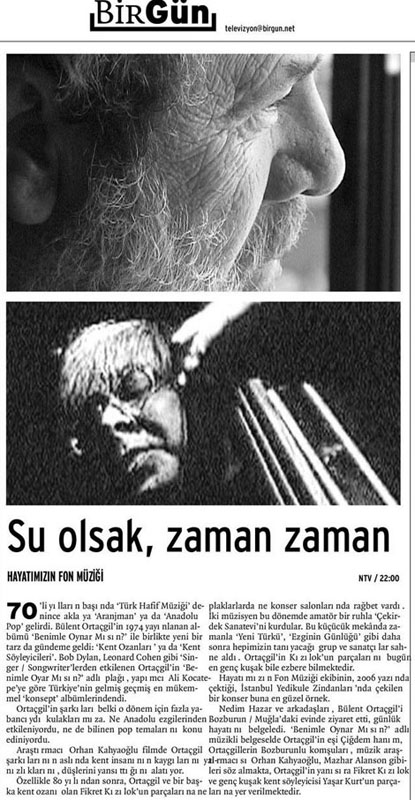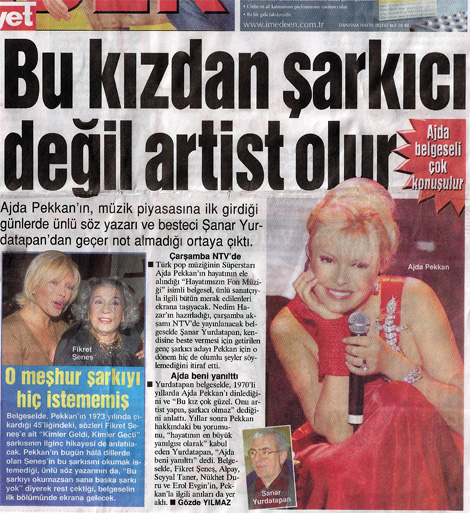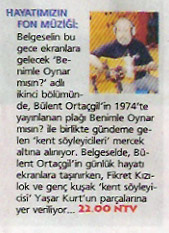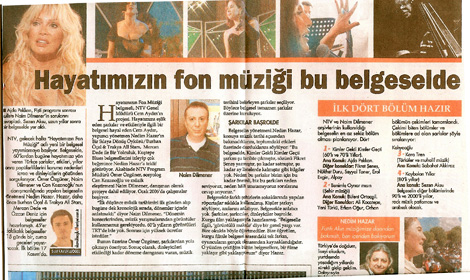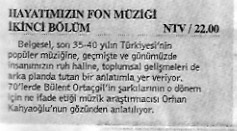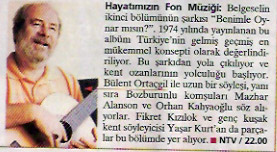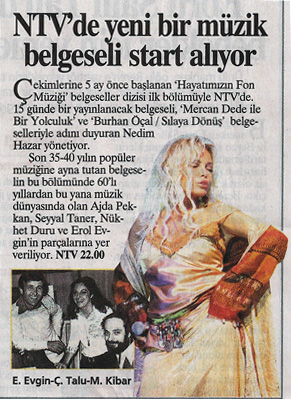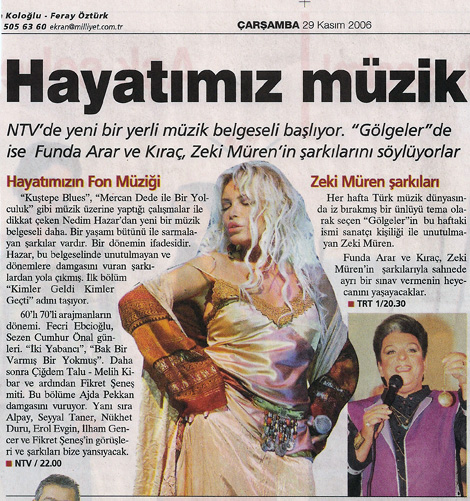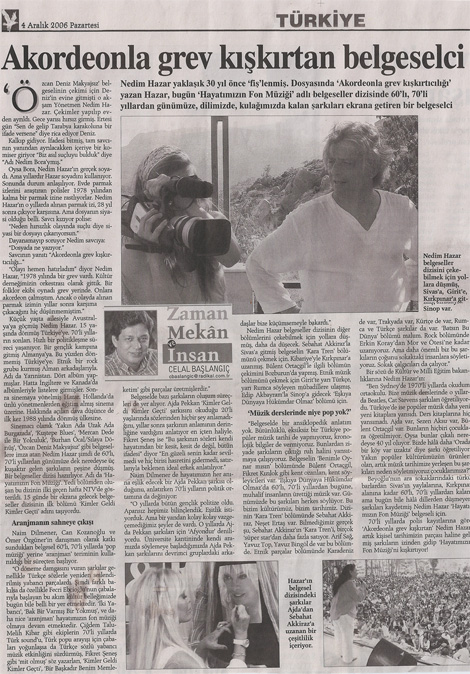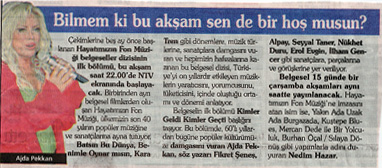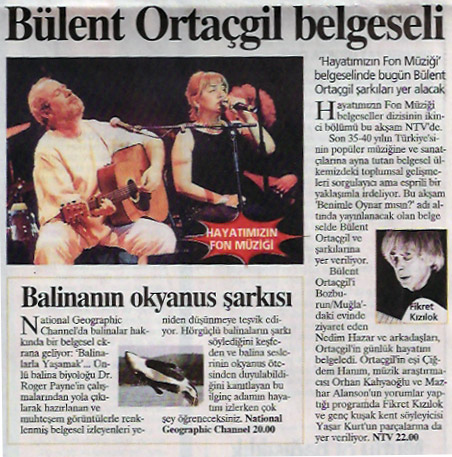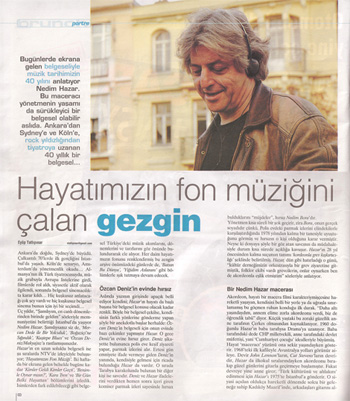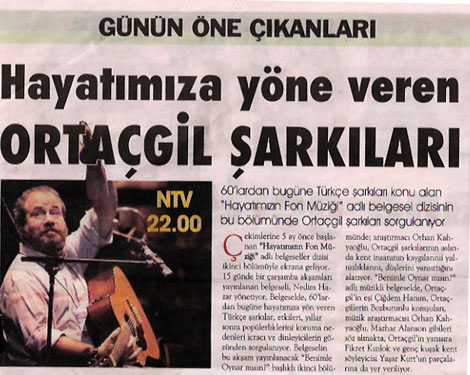Each title of the episodes of “Our Background Music” are songs lines from different musical genres. Songs which everyone, whether in the village or in the city, young or old, poor or rich, knows or sings.
People sing theses songs themselves in front of the camera, passers-by on the street, seasonal workers in the fields, concert-goers, etc., and talk about what the particular song stands for in their own lives. Of course, there are interviews with the most famous artists of the respective genre. There are excerpts from concerts, or they give live performances in front of the film team. But the focus of “Our Background Music” is always on the song itself. The stories of these songs are told in their historical and social contexts.
The episode about oppositional music was particularly precarious at the time of airing in 2007. This episode featured the band Yorum, among others. One of the group’s musicians recently died as a result of a hunger strike. A few years before this documentary series was broadcast, the popular singer Ahmet Kaya, who is also featured, was mobbed during a television award ceremony and immediately left Turkey because he wanted to sing a song in Kurdish. He died shortly afterwards in exile in Paris.
“Our Background Music” received high praise from the press, unexpectedly high ratings and became a milestone in the history of Turkish television.
WRITTEN AND DIRECTED BY
Nedim Hazar Bora
DIRECTOR OF PHOTOGRAPHY
Bahattin Demir
ADVISORS
Ömer Özgüner
Naim Dilmener
Can Kozanoğlu
Serkan Seymen
PRODUCTION
NTV
BROADCAST
NTV
All Parts
Who Came and Who Went By?
“Kimler Geldi Kimler Geçti”, the most famous song of Turkish pop music is a cover of “If We Were Free” by Englishman Tony Hatch. In the 60s and 70s, European hits, especially Italian and French ones, were covered in Turkish. The resulting new genre of pop music was called “Aranjman” or “light music”. Such labels were crucial passing through the censorship of the state-owned TRT, the only broadcaster at the time. They checked not only lyrics but also the music itself. Fusion, e.g. European with local sounds, was not allowed. It took a long time until the Turkish sound integrated with Turkish pop music.
In this episode, interpreters such as the legendary pop diva Ajda Pekkan, Alpay, Seyyal Taner, Nükhet Duru, Erol Evgin appear - they are primaeval foundations of Turkish pop. Stars of the younger generation, e.g. Sezen Aksu or Tarkan, were planned for another episode, which unfortunately was not realized.
Will You Play With Me?
With his album carrying the same title, Bülent Ortaçgil initiated the singer-songwriter’s genre in Turkey in 1974. Singing self-composed songs, e.g. about loneliness, lovesickness, the meaning of life in the big city, was unheard of in Turkey before. His sound, style and the themes were not comparable with the Anatolian “Aşık” / Folk Poet tradition.
Ortaçgil and like-minded musician Fikret Kızılok remained outsiders in the Turkish music market for a long time. In the early 80s, they founded a small music club in the Asian part of Istanbul, which became a springboard for many other bands and artists of the later generation. Bülent Ortaçgil still gives guest performances at rock festivals occasionally and is considered a milestone in Turkish music today.
The Black Train
Folk music has a different status in Turkey. In earlier times, folk poets and singers stood in the middle of peasant struggles against large landowners. Today it is the soundtrack of the little people of Anatolia and deals with topics such as life in foreign lands and longing for home, like the traditional song “The Black Train”. The new interpretation of the song by Sabahat Akkiraz sold millions of copies in the 80s and helped the Alewitic singer to star status.
In dieser Folge werden u.a. Sabahat Akkiraz, Arif Sağ, Yavuz Top, die kurdische Sängerin Aynur und der legendäre, 2012 verstorbene Neşet Ertaş vorgestellt; Künstler, welche die strengen Zensurregeln der Volksmusiksparte des staatlichen Rundfunks vor allem aus politischen Gründen nicht bestehen konnten.
Maybe One Day in Life
The first major hit of Turkish rock music was recorded in 1967 in Cologne with local background singers. 13 years later, interpreter Cem Karaca came back to Cologne, where he spent several years in exile because of the Turkish military junta. While Karaca sang about the exploitation of workers, the other pioneer of Turkish rock, Barış Manço, preferred to sing apolitical songs about the mountains of Anatolia.
Both are deceased. Their music inspires the numerous rock bands of the new generation. Rock is prevalent in Turkey. Many acts and bands bear its rebellious soul today. Bands such as Duman, Mor ve Ötesi, Bulutsuzluk Özlemi, Teoman, Aylim Aslın, Erkin Koray, Athena and Moğollar. They appear in this episode.
I’m In Trouble
This song was a hit by the late singer Ahmet Kaya from the 1990s and stands as a metaphor for the situation of numerous musicians who were persecuted and imprisoned by the state, served long prison sentences or had to go into exile while everyone sang their songs. Turkey was always ruthless towards oppositional artists. The practices of the current government are no exception.
Artists and their relatives who appear in this episode confirm this: Şanar Yurdatapan, Selda Bağcan, Ferhat Tunç, Kaya’s wife Gülten Kaya, Zülfü Livaneli, Kardeş Türküler, Yeni Türkü etc. This episode was the only time the left-wing band “Grup Yorum” was allowed to perform in Turkish television. There are also recordings of the opera singer Ruhi Su, who interpreted folk songs in his way, which were never broadcasted previously.

